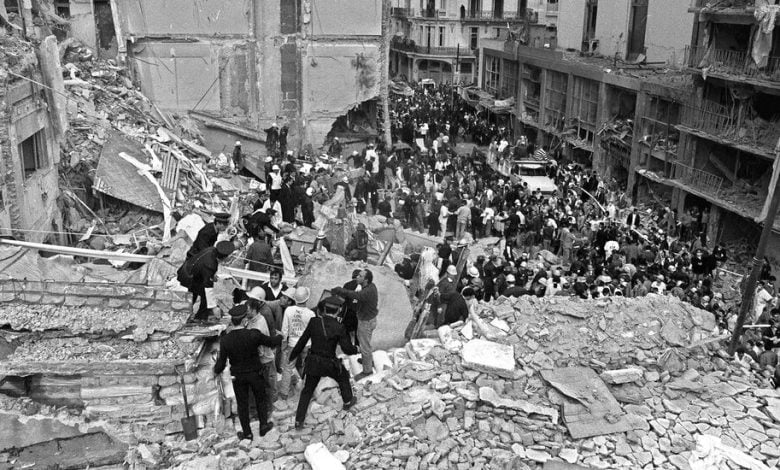Argentine Court Says Iran Was Behind Israeli Embassy and Jewish Center Attacks

A high court in Argentina ruled on Thursday that Iran was the mastermind of the 1994 bombing of a Jewish community center in Buenos Aires that killed 85 people, potentially paving the way for relatives of victims to make claims against the country in international tribunals.
While Argentine investigators have long believed that Iranian operatives and high-ranking officials played key roles in the attacks, the decision this week by Argentina’s second-highest tribunal goes further by holding the Iranian state itself responsible.
The ruling also characterized Iran as a terrorist state at a moment when tensions are running particularly high between Iran and Israel. Iran has repeatedly said it will launch an attack against Israel in retaliation for a recent bombing in Syria that killed several top Iranian commanders.
“The 1994 attack in Buenos Aires was organized, planned, financed and executed under the direction of the authorities of the Islamic State of Iran, within the framework of Islamic Jihad,’’ said the ruling by the three-member court that declared the attack a crime against humanity.
The court said the attack itself was carried out by Hezbollah, the Lebanese militant group.
The judges said Tehran was also to blame for the 1992 bombing of the Israeli Embassy in Buenos Aires that killed 22 people. The attacks were carried out in retaliation for the Argentine government’s decision to cancel contracts to provide nuclear material to Iran, according to the ruling.
Iran has steadfastly denied any involvement in the attacks.
The “verdict reaffirms what the Argentine justice system has been asserting through numerous rulings for decades,” the Argentine Jewish Mutual Aid Association, whose building was the target of the attack, said in a statement.
“It’s the position we’ve always upheld,” said Jorge Knoblovits, the head of an association that represents more than 100 Jewish organizations in Argentina. “The Islamic Republic of Iran was the one responsible for all of this.”
The court ruling said a state can be held responsible for financing and planning a terrorist attack even if it was carried out by nonstate actors.
The ruling opens the door for relatives of victims to pursue claims against Iran in international tribunals, Mr. Knoblovits said, though it was unclear if a case could be brought before the International Court of Justice, the U.N.’s highest judicial body, or elsewhere.
“We’re currently analyzing that,” he said.
The ruling is the latest twist in an investigation that has been mired by accusations of coverups and plagued by controversy.
In 2015, a special prosecutor was found dead with a gunshot wound to the head shortly after he accused then-President Cristina Fernández de Kirchner and other top officials of conspiring with Iran to cover up its involvement in the community center attack. The former president has repeatedly denied the accusations.
The government of right-wing President Javier Milei, who came into office in December and is a strong ally of Israel, hailed Thursday’s ruling, saying it “brought an end to decades of delays and coverups.”
